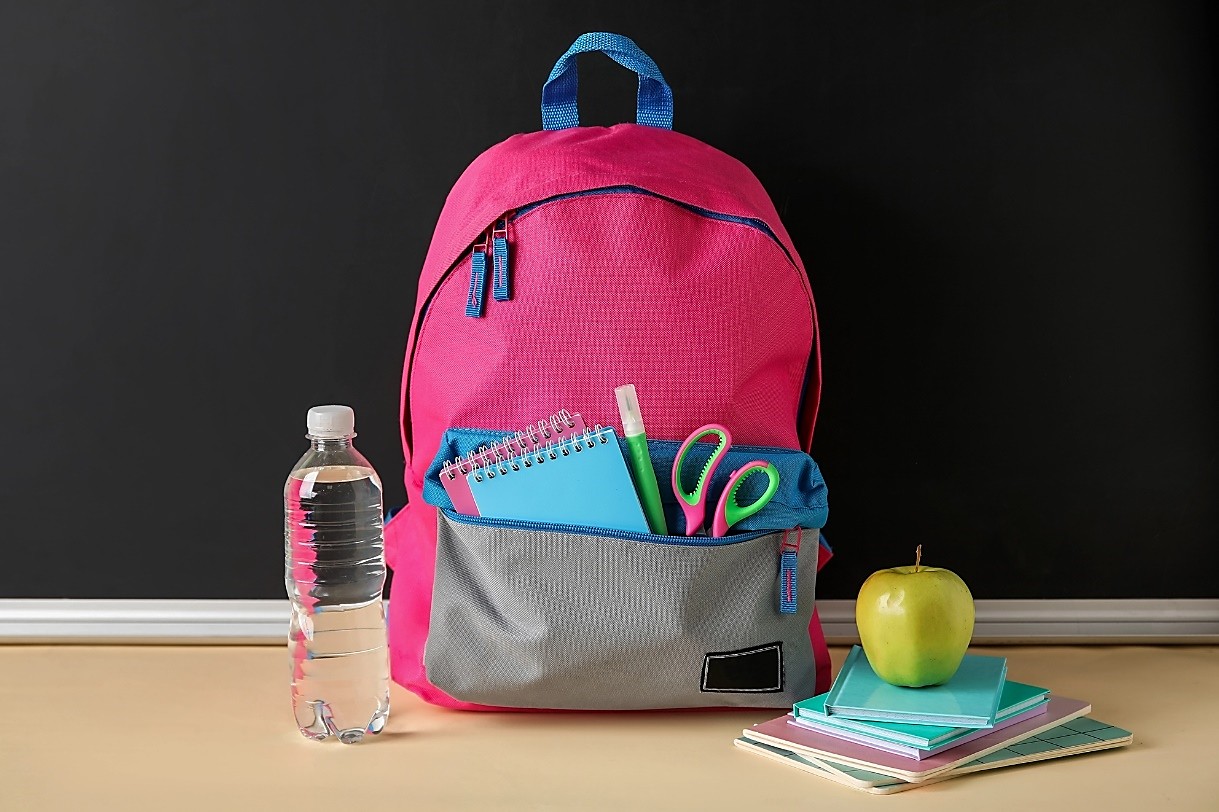
by Fern Shaw | Nov 3, 2025 | mains fed water cooler, water cooler, Water Coolers, water dispenser
In schools, colleges and universities, convenience, safety and wellbeing all play an important role in creating a positive learning environment. Installing a water dispenser or water cooler might seem a small change, but it brings a range of practical benefits for both staff and students.
Supporting Smooth Daily Routines
In busy educational settings, time is precious. A water cooler allows teachers, support staff and pupils to easily access hot or cold water without queueing or waiting for a kettle to boil. This small convenience helps keep lessons running smoothly and ensures everyone can get a quick drink between classes or meetings.
Cost and Energy Efficiency for Schools
Running a school efficiently means keeping a close eye on resources. Kettles and old-style boilers consume far more electricity than a modern, energy-efficient water dispenser. Over time, this can lead to measurable savings – freeing up funds that can be better spent on pupils and learning materials.
Reliable and Convenient Access for All
Having a constant supply of fresh drinking water helps maintain a calm, organised atmosphere throughout the day. Mains-fed water coolers ensure water is always available, whether in staff rooms, corridors, or shared student areas. There’s no need to restock bottles or worry about supplies running out, making it easier for everyone to stay comfortable and focused.
Hygienic and Professionally Maintained
Clean, safe water is vital in educational environments. AquAid service all mains connected water coolers every six months and all bottle-fed coolers every three months. Each visit is carried out by WHA accredited engineers, ensuring high standards of hygiene and care. Regular maintenance keeps the units spotless and reliable for both staff and children.
A Simple Addition with Lasting Benefits
Adding a water dispenser – as an example – a free standing water fountain – to your school, college or university is an easy, cost-effective way to improve convenience, reduce energy use and support a cleaner, more efficient learning space.
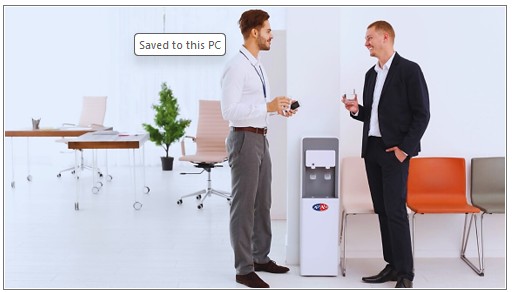
by Fern Shaw | Oct 29, 2025 | water cooler, Water Coolers
There’s no shortage of chatter about the water cooler. It’s earned a spot in everyday language – from the ubiquitous ‘water cooler chats’ to those quick catchups where someone says, “See you at the water cooler in ten.” Sure, it’s where you refill your water bottle, but it’s also where ideas are shared, there’s likely a bit of banter, jokes may be told and workmates connect for a few much-needed minutes away from their desks.
And who knows – somewhere out there, there may be a guru meditating next to a water cooler, ready to share a pearl of wisdom with anyone stopping by for a refill.
Water Cooler Wisdom: Breaks Make You Better
Let’s clear something up – taking a break doesn’t make you lazy. Quite the opposite. Studies have shown that short breaks during the day actually boost productivity, creativity and focus. It’s the workplace version of a power nap, except with water instead of a pillow.
When you take a few minutes to refill your water bottle or glass, you’re not just giving your mind a breather – you’re rehydrating your brain. And a well-hydrated brain is sharper, quicker and far better at remembering things (like where you left your water bottle).
Water Cooler Reflections: Which Type Are You?
So, which are you – the full-throttle workaholic who powers through the day without looking up, or the balanced pro who knows a quick water break can work wonders?
Whatever your style, having a water cooler nearby can make all the difference. It’s a small but mighty workplace upgrade – good for your body, your focus and even your team spirit.
Water Cooler Action: Time to Call AquAid
If your workspace doesn’t yet have a water cooler, now’s the perfect time to change that. At AquAid, we provide a wide range of office water coolers and hydration solutions to suit every workplace – whether you’re a small office, a busy warehouse, or a large corporate environment.
We’d love to help you find the perfect fit.
📞 Call us: 0800 772 3003
📧 Email us: Click here
💧 Browse our range: Click here
🌍 Follow us: LinkedIn Facebook and X
Stay refreshed, stay productive and keep those water cooler conversations flowing.
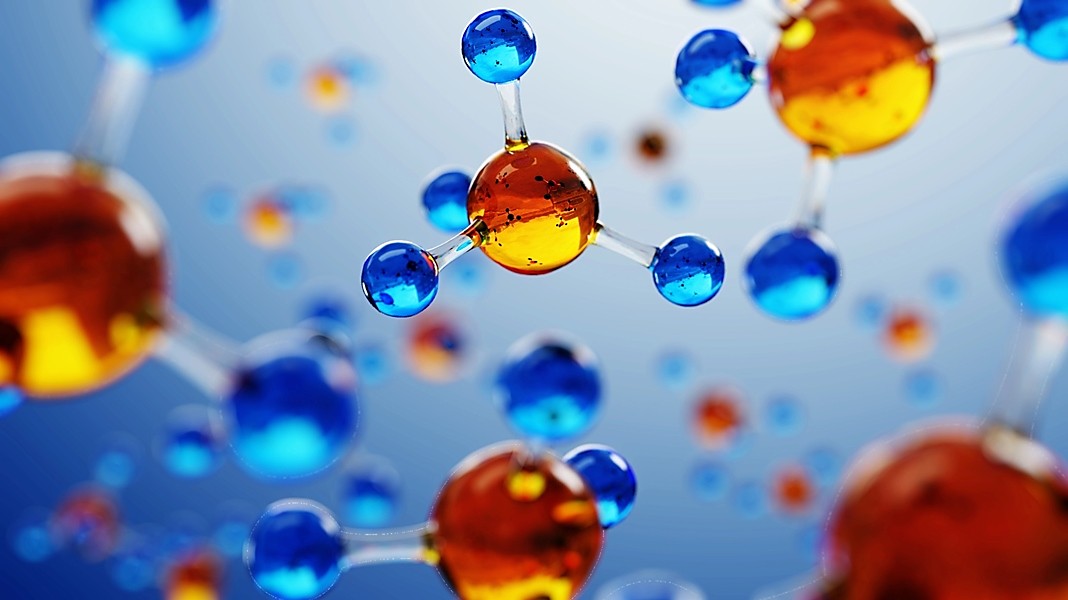
by Fern Shaw | Oct 27, 2025 | Water Boilers, water cooler, Water Coolers
You’d think it would be simple, right? Water is just two hydrogen atoms and one oxygen atom. So why can’t we just mix them together and end the world’s water shortages once and for all?
Well, as it turns out, that’s where things get a little … explosive.
The Science Bit (Without the Headache)
To create water, you need both hydrogen and oxygen atoms. Mixing them together, however, doesn’t magically make water – you just end up with a room full of flammable gas and some nervous scientists.
For hydrogen and oxygen to truly bond, their electrons need to link up. And that requires a sudden burst of energy, basically a spark, to get the atoms to ‘hook up’.
Sounds easy enough, but here’s the problem: hydrogen is highly flammable and oxygen feeds fire. Put them together and one tiny spark later – boom! You get water … and possibly an impressive fireball.
So, What’s the Alternative?
Not to worry, there’s no need to start mixing gases in the office kitchen to stay hydrated. There are brilliant minds out there working on safer, sustainable ways to generate water.
For now, if you’re after a reliable and constant source of water that doesn’t go ‘boom’ when you drink it, speak to us at AquAid.
Safe, Healthy Hydration
Explore our range of water coolers, hot water boilers and water fountains – the perfect solution for all your drinking water needs – for offices, worksites, schools, hotels and anywhere else you’d rather keep things calm, cool and well hydrated.
Not sure which water cooler suits your needs? Contact us at AquAid where one of our friendly team will be happy to help you find the perfect fit.
Just one note – our water coolers aren’t designed for scientific experiments. Best leave that to the professionals!
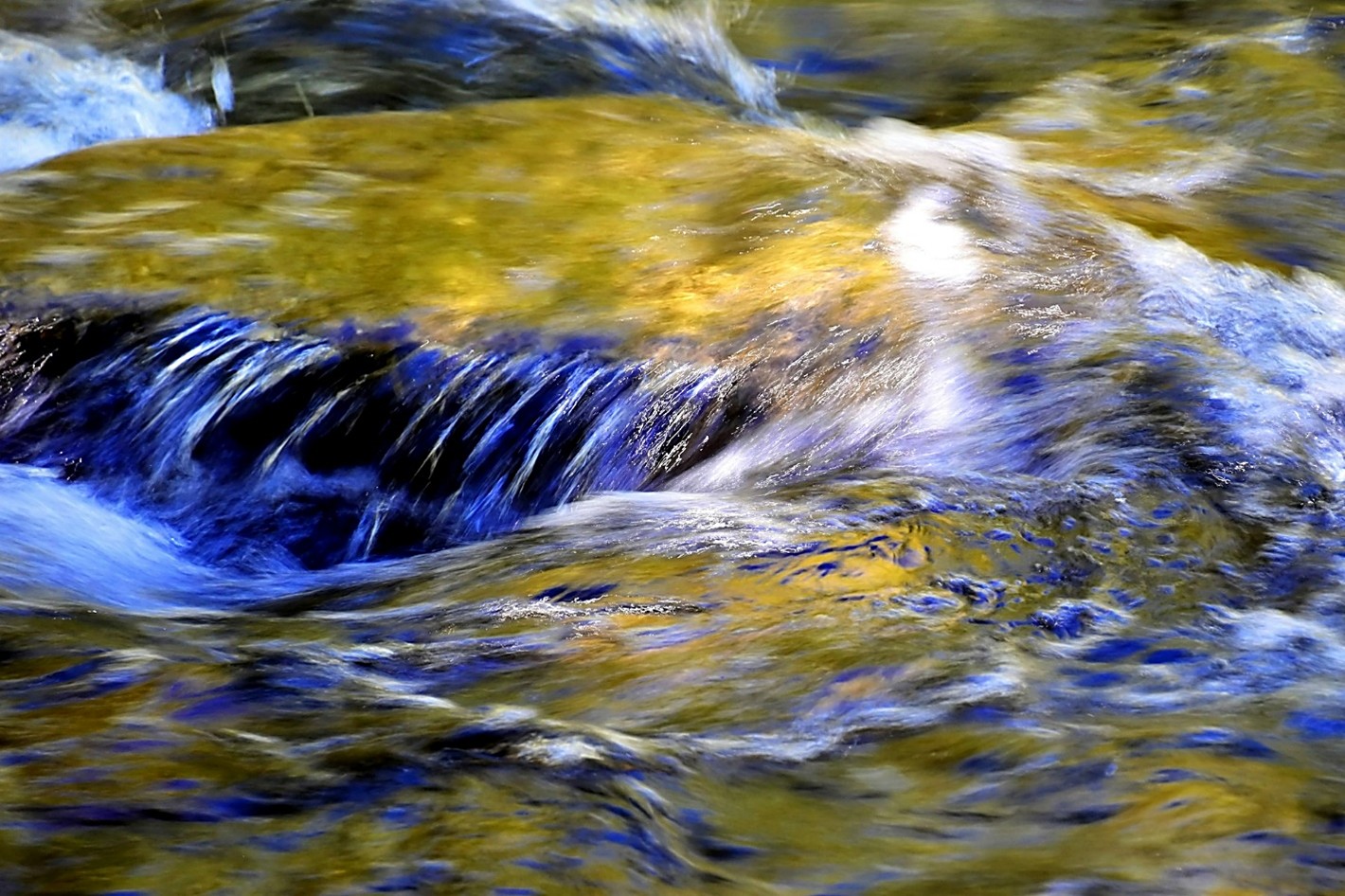
by Fern Shaw | Oct 15, 2025 | Water, water cooler, Water Coolers
That rather clever, my dears, is apparently a quote by Leonardo da Vinci. Who he? According to Wiki, this genius was a (don’t hold your breath now) polymath, painter, sculptor, architect, musician, mathematician, engineer, inventor, anatomist, geologist, cartographer, botanist and writer.
To see how truly marvellous water is, I’ve gathered a selection of quotes about water. I think they’re rather lovely:
If there is magic on the planet, it is contained in the water. ~ Loren Eisley
Everywhere water is a thing of beauty, gleaming in the dewdrops; singing in the summer rain; shining in the ice-gems till the leaves all seem to turn to living jewels; spreading a golden veil over the setting sun; or a white gauze around the midnight moon. ~ John Ballantine Gough, A Glass of Water
Water flows humbly to the lowest level.
Nothing is weaker than water,
Yet for overcoming what is hard and strong,
Nothing surpasses it.
~ Lao Tzu, Tao Te Ching
Water is H2O, hydrogen two parts, oxygen one, but there is also a third thing that makes water and nobody knows what that is. ~ D. H. Lawrence, Pansies
When the well is dry, we know the worth of water. ~ Benjamin Franklin
Praised be Thou, O Lord, for sister water, who is very useful, humble, precious, and chaste.
~ St. Francis of Assisi, Canticle of the Sun
We forget that the water cycle and the life cycle are one. ~ Jacques Cousteau
I’d hazard an opinion that water is not just the driver of nature, but ultimately the driver of life. Without water we’d be in a sorry situation very quickly.
Fortunately for us Earth dwellers, we do have water. What we need to remember though is that potable water is becoming scarcer than need be. It is our responsibility to ensure that we protect this, the most important of our natural resources.
At AquAid, we like to do our bit, by providing water coolers that don’t leak or drip, but sit quietly and unassumingly in their designated water cooler area (wherever you decide that may be) offering a constant, consistent supply of refreshing drinking water.
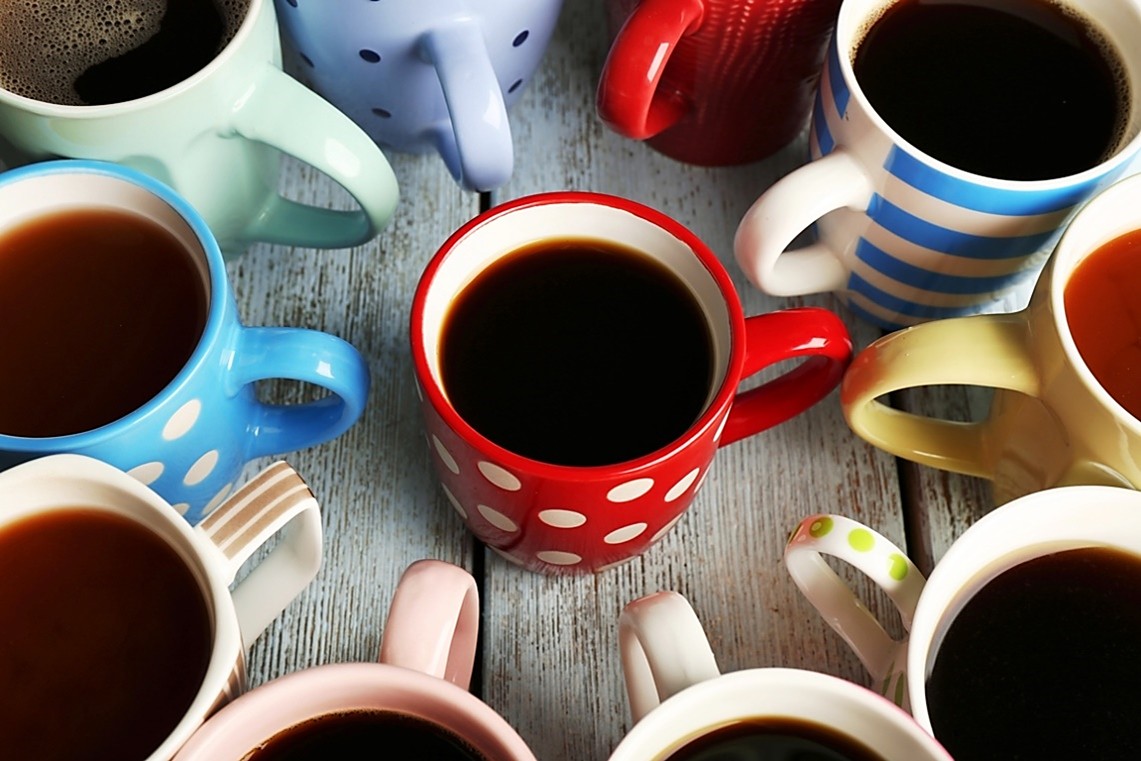
by Fern Shaw | Oct 1, 2025 | water boiler, water cooler, Water Coolers, water dispenser
Is International Coffee Day cause for celebration? We think so. (Though it’s possible your jittery enthusiasm is less ‘cheer’ and more ‘over-caffeinated’.)
Do we rank in the global coffee consumption lists?
No, we do not. Not even close. Luxembourg does. Finland does. As do Norway, Denmark and Sweden.
Okay, but if we are drinking coffee, is it good for us?
Coffee probably makes the modern world go round – and it’s been doing so since it hit the West in the 1600s. But as with all good things, the golden rule applies: everything in moderation.
That morning coffee (ideally after breakfast) is a great way to get going. But if your day is fuelled solely by creamy lattes and sugar-laden cappuccinos, the benefits of coffee can quickly get buried under the calories.
Pro tip: Pair every coffee with a drink of water to stay hydrated. Not only is it great for your body, but your skin and energy levels will thank you too.
A pre-workout coffee? Yes, really.
Many avoid coffee before exercising, thinking it’s too dehydrating. Actually, a cup of coffee before a workout can help boost fat burning, improve endurance, and reduce fatigue – just hold the honey and whipped cream.
It’s what’s inside that counts.
Coffee is packed with flavonoids, powerful antioxidants that help stop LDL cholesterol from oxidising—great news for your heart health. And if you keep it simple (read: black coffee, no sugar), your daily brew clocks in at just 2 calories. Diet-friendly and delicious.
But first … hot water.
No coffee without hot water – which is where we come in. With an AquAid water dispenser, instant hot water boilers, or boiling water taps, getting your perfect cup is effortlessly easy, whether you’re in the office, at home, or anywhere in between.
Even better? Every cup you brew helps support Christian Aid and The Africa Trust, who bring clean drinking water to communities across Africa. So, while you’re sipping your hot coffee, someone else is getting access to safe, life-changing water.

by Fern Shaw | Sep 29, 2025 | instant tap, mains fed water cooler, water cooler, Water Coolers
Whether you’re operating a multinational corporation or managing a team of two, one thing remains the same: employers have a responsibility to provide a safe, healthy and supportive work environment.
It’s not just about ticking boxes. It’s about genuinely caring for your team’s well-being – and that starts with the basics.
What Does a Healthy Work Environment Look Like?
A positive workplace doesn’t need to be extravagant. But it does need to ensure that everyone has access to key resources that help them stay focused, energised and well.
At the very least, a responsible employer should provide:
- Easy access to a constant supply of drinking water throughout the day
- A space to eat and recharge, even if it’s just a small break room
- A designated area away from the desk where staff can take short breaks
- Clean, well-maintained bathroom facilities
These are simple, everyday needs – but when they’re consistently met, they contribute massively to morale, productivity and staff retention.
Going Beyond: When Your Water Cooler Does More Than Just Hydrate
It’s easy to overlook the office water cooler. But what if something as ordinary as drinking water at work could have an extraordinary impact somewhere else in the world?
That’s exactly what AquAid has built its mission around.
While AquAid offers a wide range of high-quality water coolers, hot water boilers, bottled water solutions and Instant Taps across the UK – with professional installation and aftercare – it’s their commitment beyond the workplace that truly sets them apart.
Drinking Water Here = Safe Water There
For every mains fed water cooler installed or bottle of water purchased from AquAid, a portion of the proceeds goes directly to charities that provide sustainable, life-saving water resources to communities across Africa.
That means your workplace water solution could be helping to:
- Fund the installation of community water wells in rural villages
- Support long-term water purification systems
- Empower local teams to manage and maintain their own water infrastructure
- Provide safe drinking water to schools, health clinics and households where it’s desperately needed
And we’re not talking small numbers. Through partnerships with organisations like The Africa Trust and Christian Aid, AquAid has helped bring clean, accessible water to millions of people.
Keen to Make a Difference? Contact us at AquAid
If the idea that your team’s daily water intake could help fund life-changing water solutions for thousands of communities aligns with your values, we’d love to hear from you.
Here’s how to get in touch:






